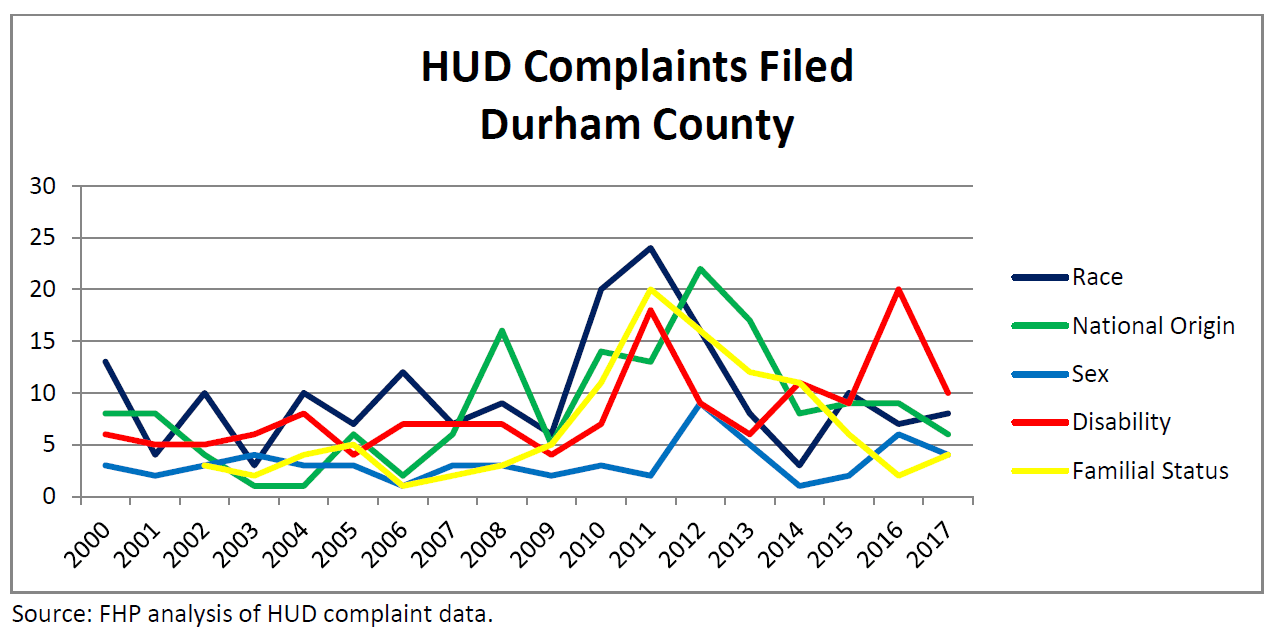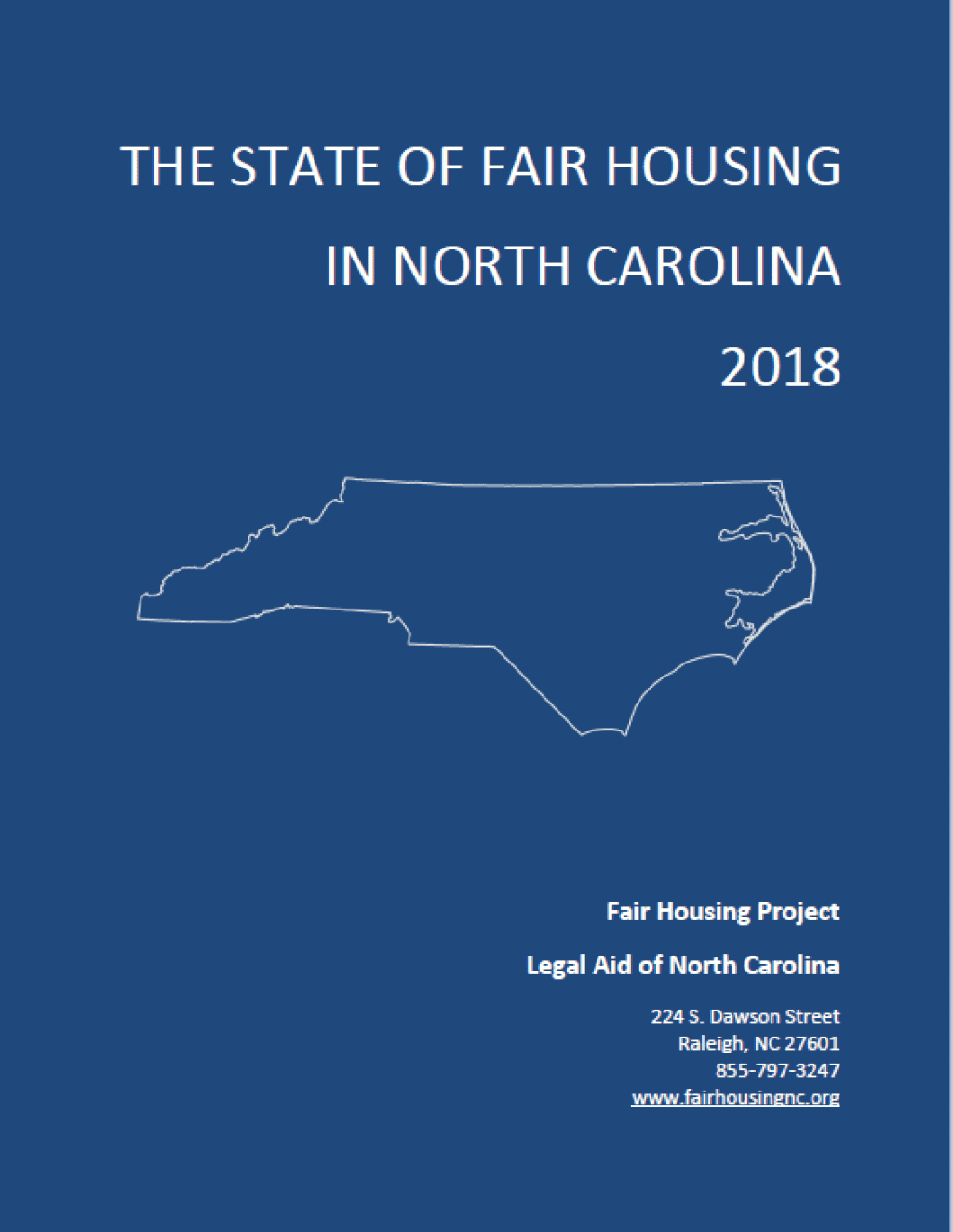
Discrimination based on race and disability account for the vast majority of housing discrimination complaints filed in North Carolina, according to a new report released last month by the Fair Housing Project of Legal Aid of North Carolina and authored by Jeff Dillman. The report, titled the State of Fair Housing In North Carolina, covers an 18-year period and 3,303 complaints.
In the period 2000-2017, 42.3% of fair housing complaints filed with HUD alleged racial discrimination and 35.9% raised disability discrimination. The next most common allegations were:
- national origin discrimination (18.8%);
- familial status (14.2%); and
- sex (12.3%).
In the past five years, the report noted that disability discrimination claims became more common (47.6% of complaints) than those raising race claims (32.4%), compared to the previous 5-year period when race claims outnumbered those filed based on disability.

The report found that in absolute numbers, the counties with the highest number of fair housing complaints were Mecklenburg (571), Durham (491), Guilford (314), Wake (276) and Buncombe (205). However, on a per capita basis, Durham residents filed almost three times more complaints than in Mecklenburg (183.5 per 100,000 people compared to 62.1). Other counties with the highest number of complaints per capita were Durham (183.5 per 100,000 people), Orange (98.7), Buncombe (86.0), Guilford (64.3), and Mecklenburg (62.1).

In addition to examining fair housing complaint data, the report includes a summary of the protection and enforcement provisions of the fair housing laws and an examination of North Carolina’s population demographics, with a focus on characteristics that are protected by our fair housing laws.
The report also includes 5 recommendations for accomplishing national and state fair housing goals:
- Increase fair housing education for the public, including for housing consumers and housing providers;
- Continue supporting the North Carolina Human Relations Commission and the five “substantially equivalent” local fair housing agencies;
- Increase awareness about fair housing accessibility requirements;
- Educate government officials, such as planning departments and city councils, about their responsibilities under the FHA, including the obligation to affirmatively further fair housing; and
- Increase fair housing enforcement.
To learn more, access the full State of Fair Housing in North Carolina report.








